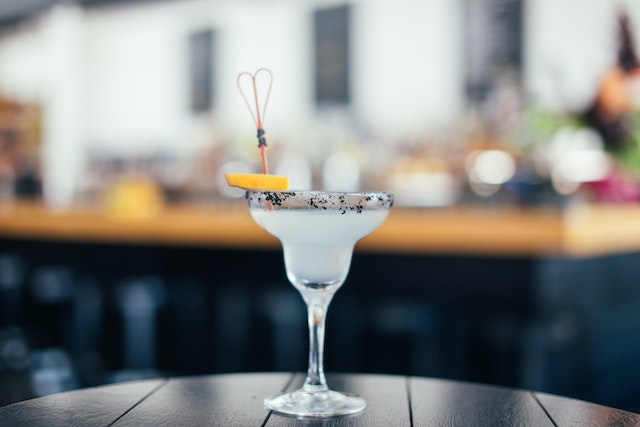
Specialty ingredients are the lifeblood of creative mixology. They take a standard drink and turn it into a masterpiece, elevating it to new heights of flavor and complexity. These ingredients come in all forms, from exotic fruits to obscure spirits, and each one has the power to transform a cocktail into an experience. They are the secret weapons of the best bartenders, who scour the globe in search of the perfect flavors to add to their drinks.
Specialty ingredients are crucial to mixology for many reasons. First and foremost, they add a unique element to cocktails that cannot be replicated by standard ingredients. By bringing in exotic flavors, different textures, and unexpected aromas, bartenders can create a taste experience that is truly unforgettable.
Furthermore, specialty ingredients give mixologists the opportunity to experiment and create new flavor combinations. Through trial and error, they can blend different ingredients until they find a perfect synergy, producing a drink that is greater than the sum of its parts. This kind of creativity is what sets great mixologists apart from the rest.
Specialty ingredients provide a way for bartenders to showcase their expertise and knowledge. By using obscure spirits and ingredients, they can demonstrate their understanding of flavor profiles and how different elements work together. This kind of expertise is essential for building a loyal following of patrons who appreciate the artistry that goes into mixology.
Exotic Spirits and Liqueurs: Elevating Cocktails to New Heights
Mixology is an art form that relies heavily on the use of specialty ingredients to create unique cocktails with complex flavors. One of the most prized types of specialty ingredients in mixology is exotic spirits and liqueurs. These rare and unique spirits bring a depth of flavor and complexity to cocktails that cannot be replicated by standard liquors. For the discerning mixologist, exotic spirits are an essential part of their arsenal. In this section, we will explore some of the best exotic spirits to use in mixology.
Rare and Unique Spirits
Baijiu: This Chinese spirit is made from fermented grains and has an incredibly complex flavor profile. It is often aged in earthenware or porcelain jars and can have a funky, earthy taste.
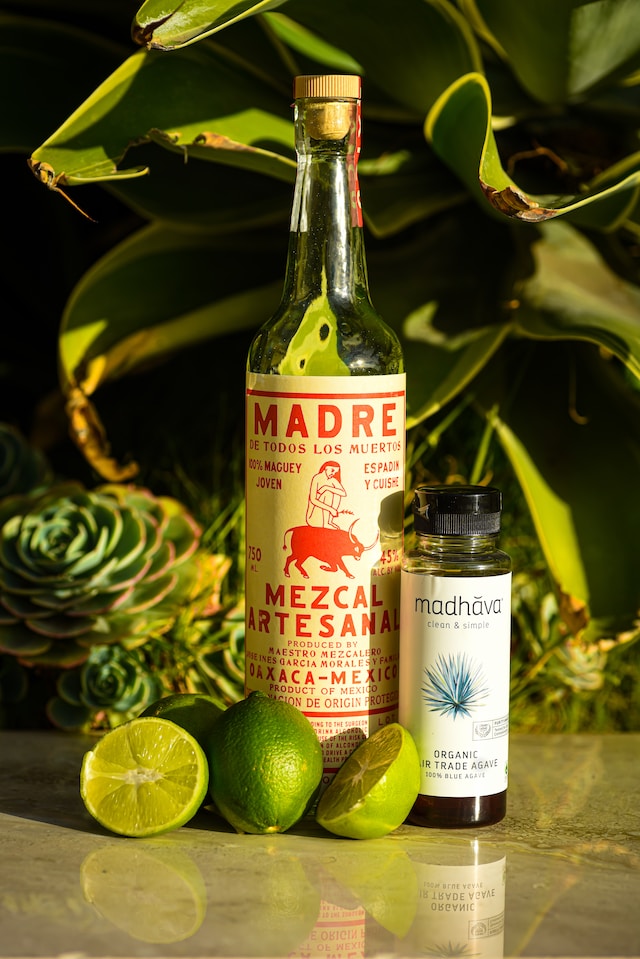
Mezcal: This Mexican spirit is made from the agave plant and has a smoky, rich flavor. Each brand of mezcal has a unique flavor profile, depending on the region where it was produced and the type of agave used.
Pisco: This Peruvian spirit is made from grapes and has a light, fruity flavor. It is often used in cocktails like the Pisco Sour.
Absinthe: This highly alcoholic spirit is made from wormwood and other botanicals. It has a strong anise flavor and is often used in classic cocktails like the Sazerac.
Craft Liqueurs
St. Germain: This French liqueur is made from elderflowers and has a sweet, floral flavor. It is often used in cocktails like the Elderflower Martini.
Green Chartreuse: This French liqueur is made from 130 herbs and has a complex, herbal flavor. It is often used in classic cocktails like the Last Word.
Amaro: This Italian liqueur is made from a blend of herbs, roots, and spices. It has a bitter, herbal flavor and is often used as a digestif.
Cointreau: This French liqueur is made from orange peels and has a sweet, citrusy flavor. It is often used in cocktails like the Margarita.
The use of exotic spirits and liqueurs is an essential part of mixology. These rare and unique ingredients bring a depth of flavor and complexity that standard liquors cannot match. It takes a skilled and knowledgeable mixologist to use these specialty ingredients properly and create masterful cocktails.
Rare and Infused Bitters: The Secret Weapons of Mixology
Bitters are an important ingredient in any cocktail, adding depth, complexity, and balance. They are made with a variety of botanicals, roots, and herbs, and can be infused with unique flavors to create rare and distinctive concoctions.
Uncommon Bitters Varieties
Mixologists use a range of uncommon bitters varieties to add unique flavors to cocktails. Here are some of the best bitters to add depth and complexity to any cocktail:
Peychaud’s Bitters: a classic New Orleans bitters made with gentian root, anise, and a range of other botanicals, known for its sweet and spicy flavor.
Fee Brothers Peach Bitters: made with natural flavors and botanicals, this bitters adds a delicate peach flavor to cocktails.
Bittermens Xocolatl Mole Bitters: Made with cocoa and a range of spices, these bitters add a slightly spicy and rich chocolate flavor to cocktails.
House-Made Bitters and Tinctures
Many mixologists develop their own house-made bitters and tinctures, using unique and rare botanicals to create custom blends. Here are some examples:
Cherry Vanilla Bitters: Made from cherries, vanilla, and a range of other herbs and spices, this bitters adds a sweet and fruity flavor to classic cocktails like the Manhattan.
Lavender Tincture: made from dried lavender flowers, this tincture adds a subtle floral note to gin and vodka cocktails.
Smoked Peppercorn Bitters: these bitters add a spicy, smoky flavor to any cocktail, infusing pepper with hickory smoke to create a rich and complex flavor.
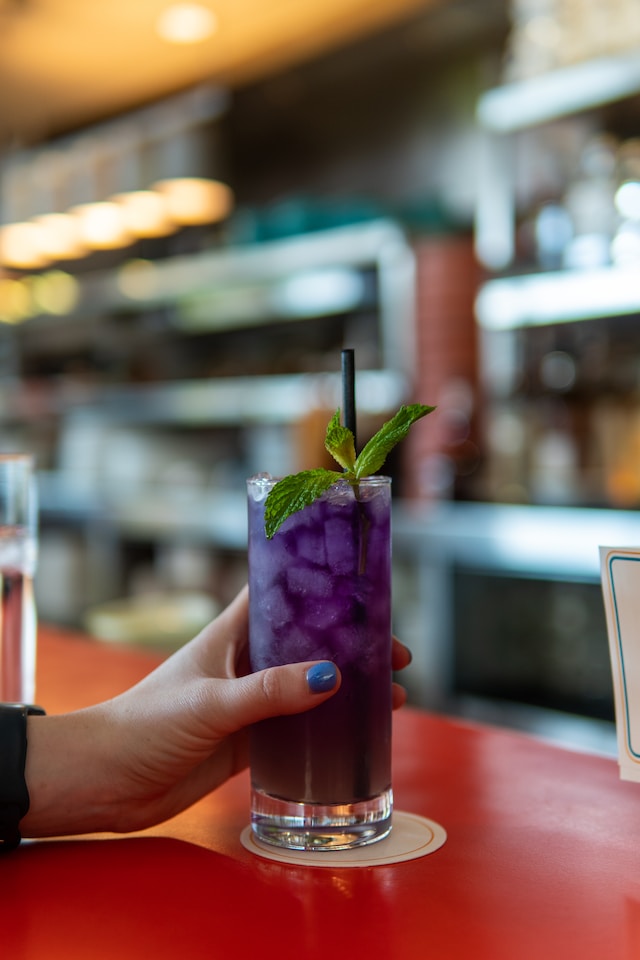
Infused Bitters
Mixologists are also experimenting with infused bitters, adding unique flavors to traditional bitters. Here are some infused bitters to try:
Grapefruit and Hops Bitters: made by infusing grapefruit peels and hops with traditional bitters, this blend adds a fruity and floral flavor to cocktails.
Tobacco Bitters: infused with tobacco leaves and a range of botanicals, these bitters add a smoky, earthy flavor to cocktails, similar to a well-aged spirit.
Jalapeño Bitters: perfect for those who like a little heat, these bitters are infused with jalapeño and other spices, adding a smoky and spicy flavor to cocktails.
Rare and infused bitters are the secret weapons of mixology, adding unique flavors and depths of complexity to cocktails. With the right blend of bitters, any cocktail can become a masterpiece, showcasing the creativity and expertise of the mixologist.
Exquisite Garnishes: Elevating Cocktails to the Next Level
Garnishes are like the icing on the cake – they add the finishing touch to a cocktail and take it from good to great. Specialty garnishes are a creative way for mixologists to show their skills and add extra flair to any drink. They can enhance the flavor profile of a cocktail, provide an interesting texture, and add visual appeal to the presentation. In this section, we will explore some options for specialty garnishes, creative presentation techniques, and examples of how to use them.
Specialty Garnish Options
Fruit Peels: Add a pop of color and flavor to a drink by using citrus peel, like lemon, lime, or grapefruit. They can be twisted, curled, or cut into fun shapes.
Edible Flowers: Impress your guests by using edible flowers, like lavender or hibiscus, as a garnish. They provide a delicate, floral aroma and a touch of elegance to any drink.
Sugar Crystals: Add a touch of sparkle to your cocktail with sugar crystals. They can be colored or flavored to match the theme or taste of the drink.
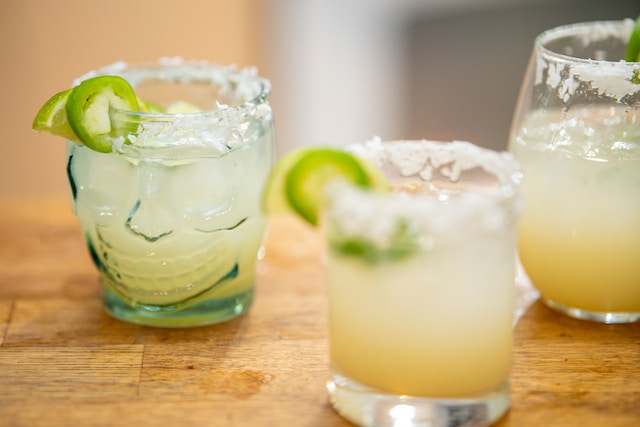
Salt Rims: Rim your cocktail with flavored salt for an added burst of seasoning. Try a smoky chipotle or spicy habanero salt on margaritas or a sweet and tangy salt on a Paloma.
Creative Presentation Techniques
Smoke and Mirrors: Add a dramatic effect to your cocktail by using dry ice or a smoke gun. The smoky aroma and foggy presentation will elevate any drink.
Beer Bottle Toppers: Add a fun element to your beer cocktails by using a beer bottle topper. These little contraptions can hold fruit, herbs, or even full-sized cocktail glasses.
Ice Spheres and Cubes: Create a beautiful presentation by using ice spheres or cubes. These can be crystal clear or infused with flavors like coffee, fruit, or herbs.
Customized Glassware: Using unique glassware can be an easy way to make a drink stand out. Try using a vintage glass or a custom-made vessel that fits the theme of the cocktail.
Examples of Specialty Garnishes
The Caesar: This classic Canadian cocktail is garnished with a complete meal – a celery stalk, a pickled bean, a pepperoni stick, and even a mini grilled cheese sandwich.
The Smoky Margarita: Add a smoldering effect to your margarita by using a smoky chipotle salt rim and a jalapeño pepper garnish.
The Lavender Martini: Add a touch of elegance to your martini by using a sprig of fresh lavender and a sugar crystal rim.
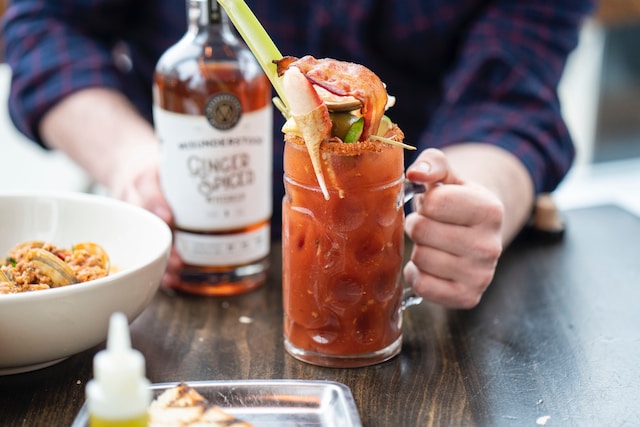
The Bloody Mary: This savory cocktail is known for its elaborate garnishes. Try adding shrimp, bacon, olives, pickles, or a whole slider burger to make it a meal.
Specialty garnishes are a fun and creative way to add that extra touch of flavor and visual appeal to any cocktail. By using unique ingredients and presentation techniques, mixologists can create drinks that are not only delicious but also Instagram-worthy. The possibilities are endless, so let your creativity run wild and impress your guests with your imaginative cocktail presentations.
Unconventional Mixers and Syrups
Mixers and Syrups are the building blocks of any great cocktail, and as such, mixologists are always on the lookout for new and unique ingredients to add to their collection. Unconventional mixers and artisanal syrups can take a cocktail from good to great, elevating the taste profile and creating a more complex and layered drink. Here are some mixers and syrups to add to your arsenal to take your cocktail game to the next level.
Unusual Mixers
Mixers can be more than just soda and juice. Unusual mixers can bring in an unexpected flavor profile and add a unique twist to a classic cocktail. Here are some examples:
Ginger Beer: This spicy and fizzy mixer is perfect for adding a kick to a Moscow Mule or a Dark and Stormy.
Coconut Water: This sweet and nutty mixer can be used in place of pineapple juice or coconut cream in tropical cocktails like the Pina Colada.
Kombucha: This fermented tea adds a tangy and slightly carbonated element to any drink. Try it in a Gin and Kombucha cocktail for a healthy and tasty drink option.
Tonics: This quintessential mixer can do more than just complement gin. With variations like Elderflower, Grapefruit, and Rhubarb tonic, there is a flavor out there to suit any cocktail.
Artisanal and Specialty Syrups
Artisanal syrups can bring in unique flavors like uncommon botanicals, floral notes, and even spicy elements. Specialty syrups, like honey or agave nectar, can be used in place of sugar in a cocktail while adding a layer of complexity. Here are some examples:
Lavender Syrup: This delicately floral syrup can be used in cocktails like a Lavender Collins or even a Lavender Margarita.
Basil Syrup: This sweet and herbaceous syrup is perfect for cocktails like a Basil Gimlet or a Strawberry Basil Smash.
Black Pepper Syrup: This spicy and sweet syrup can be used to add a bit of heat to drinks like a Spicy Margarita or a Black Pepper Old Fashioned.
Maple Syrup: This rich and sweet syrup can be used to add a fall flavor to cocktails like a Maple Bourbon Sour or a Maple Old Fashioned.
Fig Syrup: This sweet and fruity syrup is perfect for adding depth of flavor to cocktails like a Fig and Bourbon Martini or a Fig and Rosemary Gin Fizz.
Elderflower Syrup: This delicate syrup can add a floral note to cocktails like a St. Germain Spritz or an Elderflower Martini.
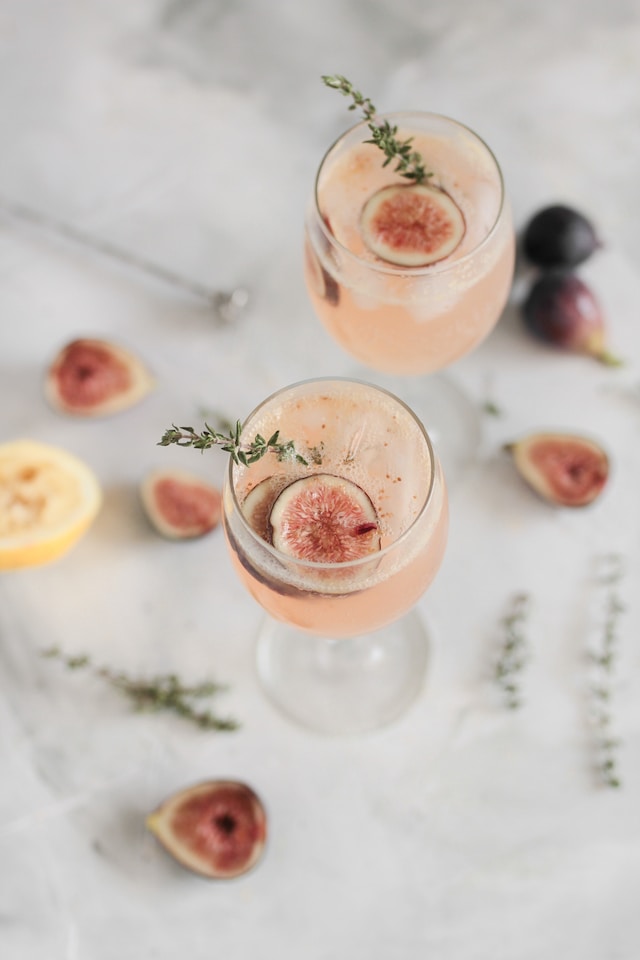
Unconventional mixers and artisanal syrups can add a whole new dimension to any cocktail, making it more than just a simple drink, but a complex flavor experience. With so many unique flavors out there, the possibilities are endless for mixologists looking to create their masterpieces.
Exotic Fruits and Spices: Elevating Cocktails to New Heights
Exotic fruits and spices are the keys to adding unique and unforgettable flavors to cocktails. They bring excitement and complexity to any drink, complementing the existing flavors and creating new taste experiences for the palate. Mixologists are constantly on the lookout for rare and unusual ingredients to incorporate into their cocktails, and exotic fruits and spices are no exception.
Uncommon Fruits: Adding a Touch of the Unexpected
Uncommon fruits are a great way to add new flavors to a cocktail. These unique fruits are typically not found in your average grocery store, and as such, add an exotic flair to your drink. Here are some examples:
Dragon Fruit: This vibrant fruit has a sweet, mild flavor and is perfect for adding a pop of color to cocktails.
Pitaya: Also known as a “dragon fruit” in some regions, this fruit is a bright pink color with a sweet and juicy flavor.
Jackfruit: Typically used in Asian cuisine, this fruit has a sweet, tropical flavor and a meaty texture that can add thickness to a cocktail.
Starfruit: With its distinct star shape, this fruit has a tangy flavor and a crisp texture, making it a great addition to tropical cocktails.
Rare Spices and Herbs: Adding Complexity to Cocktails
Rare spices and herbs are a staple in many cocktails, adding depth and complexity to the existing flavors. These unique ingredients are often found in artisanal blends and are perfect for adding a touch of intrigue to any drink. Here are some examples:
Saffron: This expensive spice adds a floral note and a distinctive yellow color to cocktails.
Pink Peppercorns: These berries have a mild peppery flavor with a sweet and fruity note, making them a perfect garnish or infusion in cocktails.
Sumac: This tart and tangy spice is perfect for adding a citrusy note to cocktails.
Juniper Berries: The key ingredient in gin, these berries add a piney and slightly sweet flavor to any cocktail.
Herbs like rosemary, thyme, sage, and basil are also excellent additions to cocktails, adding a fresh and herbaceous note to the mix.
Exotic fruits and spices are an essential part of mixology, providing unique flavors and layers of complexity to classic cocktails. The list of possibilities is endless, and mixologists who experiment with these ingredients can create truly memorable drinks for their patrons. From uncommon fruits to rare spices and herbs, these ingredients open up endless possibilities for creativity and innovation in the world of mixology.
